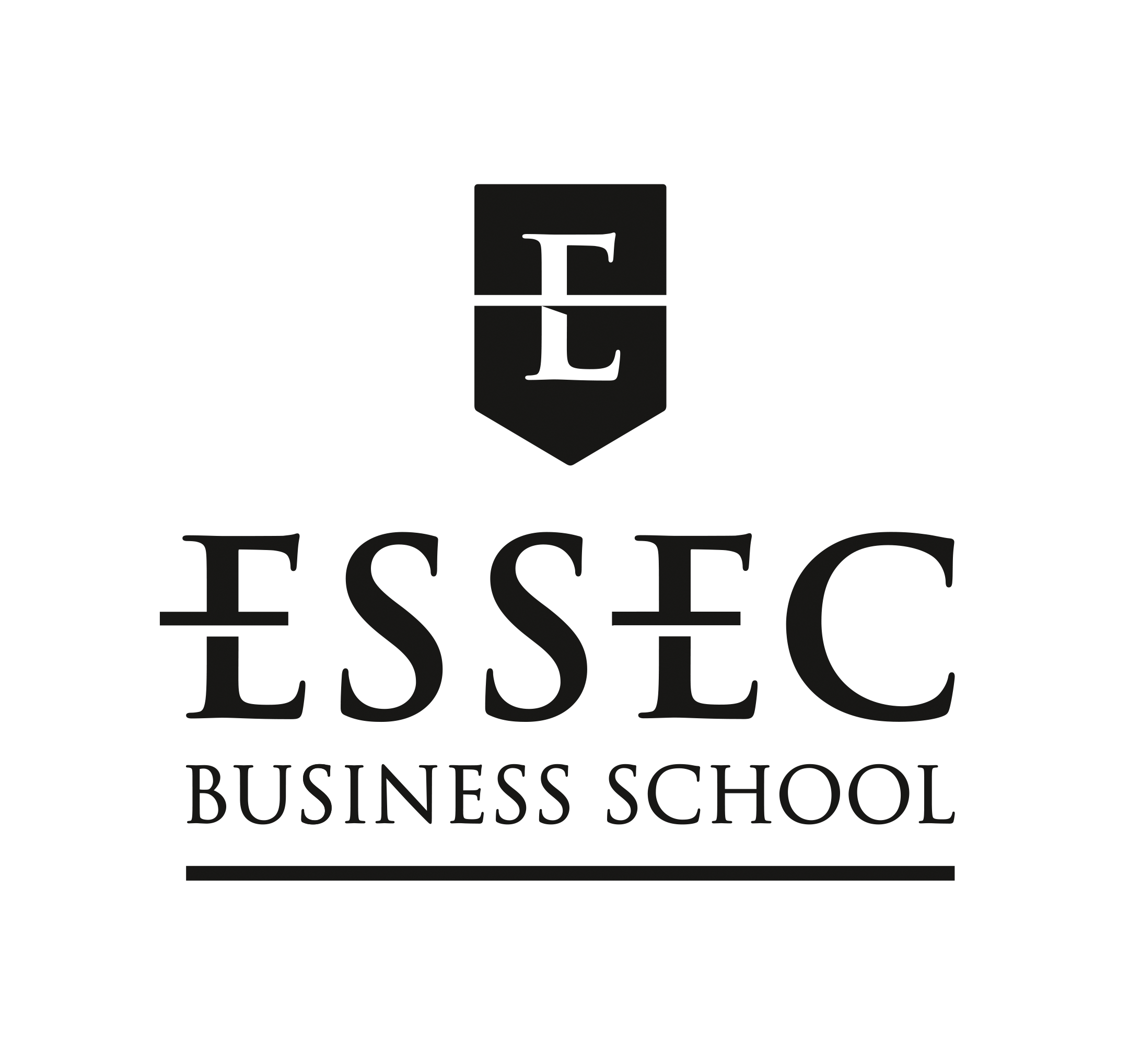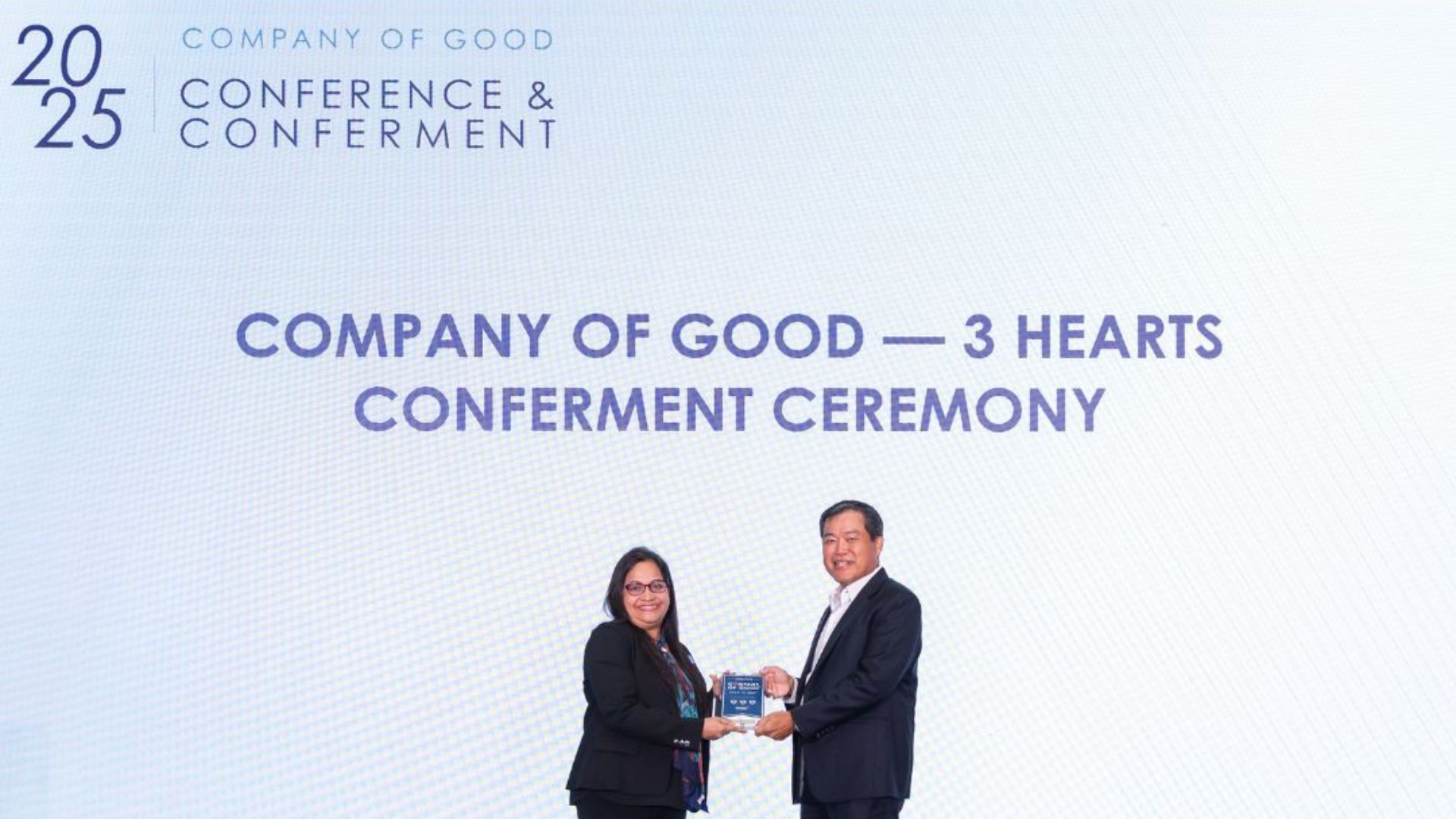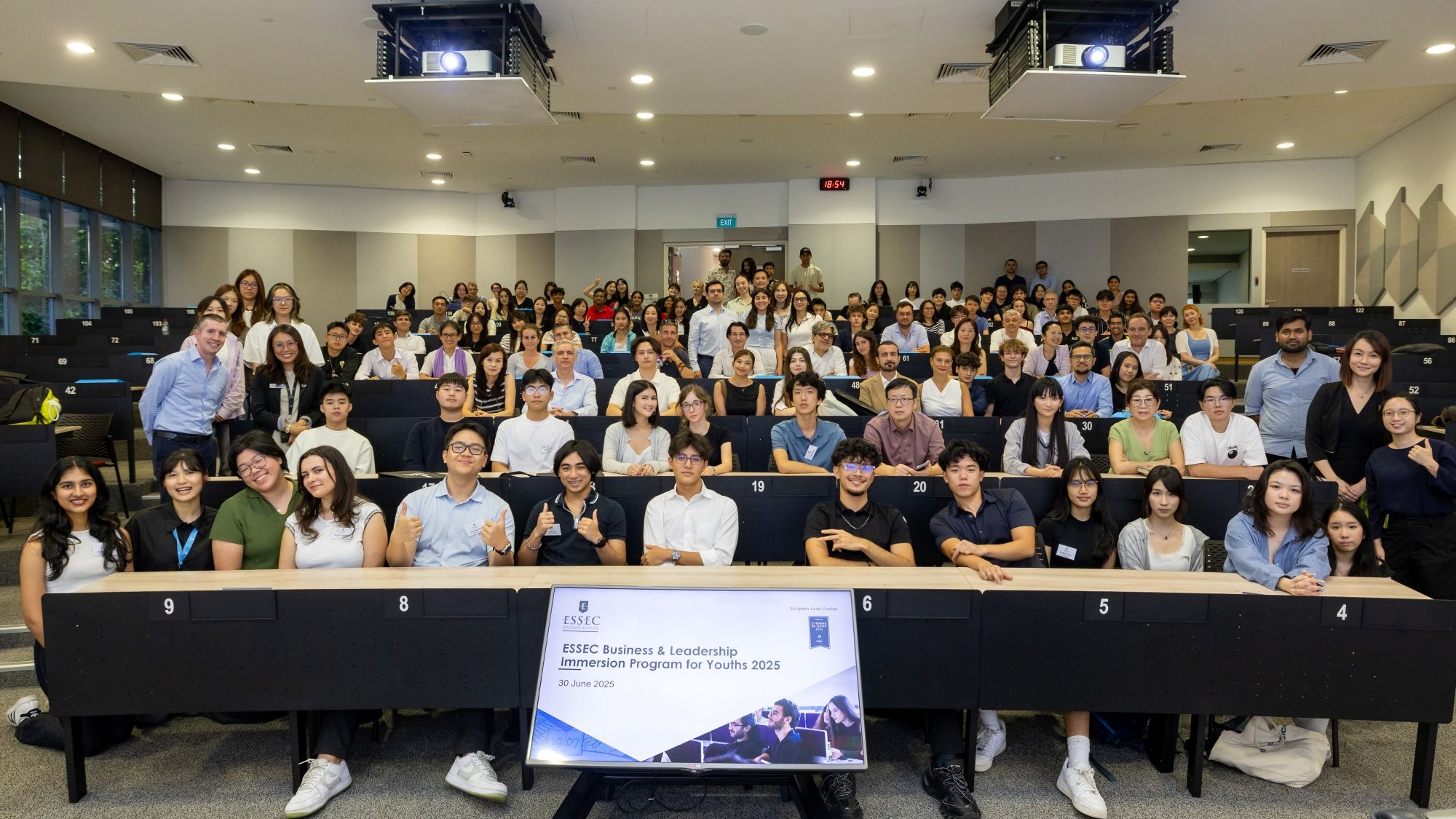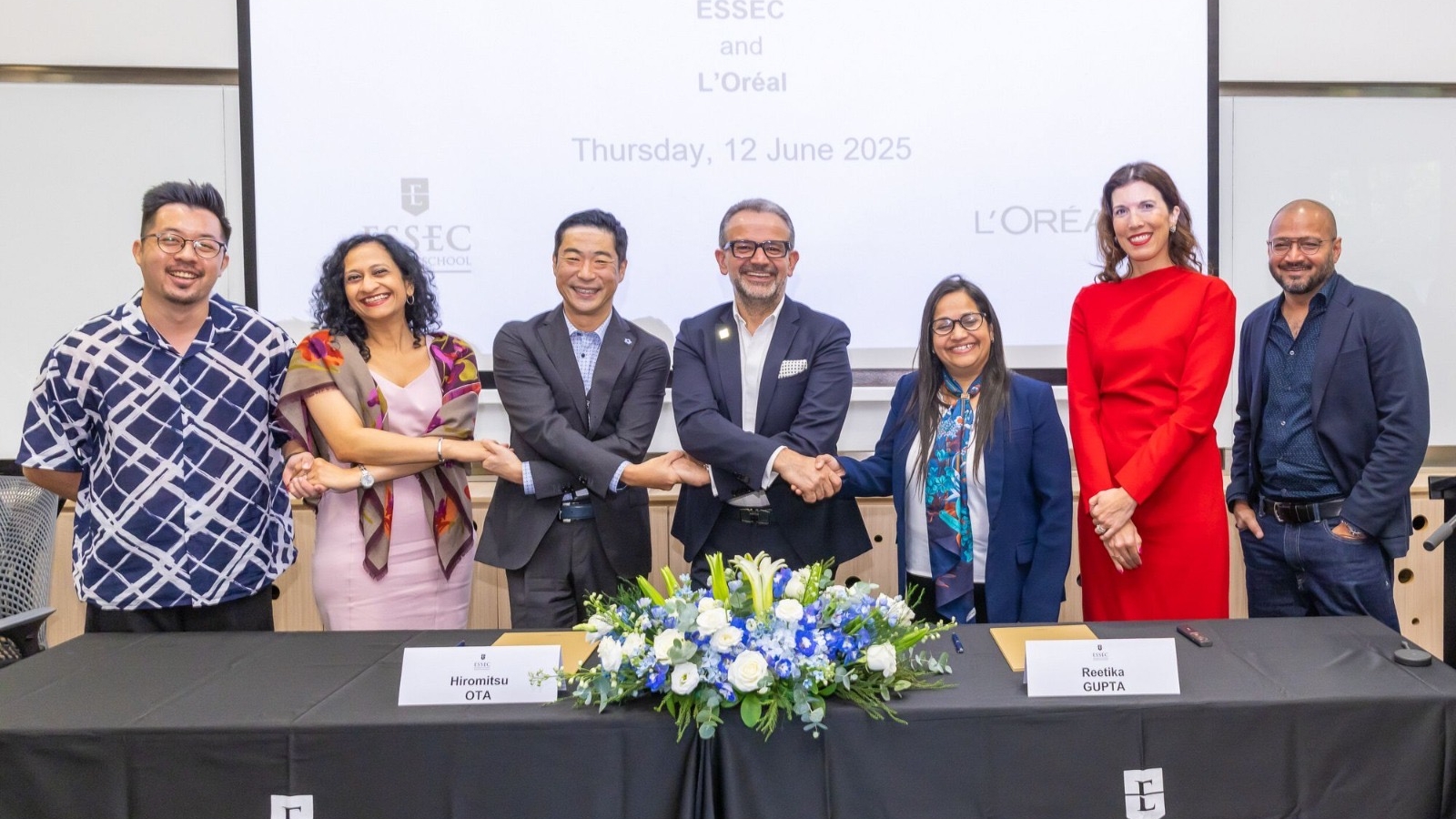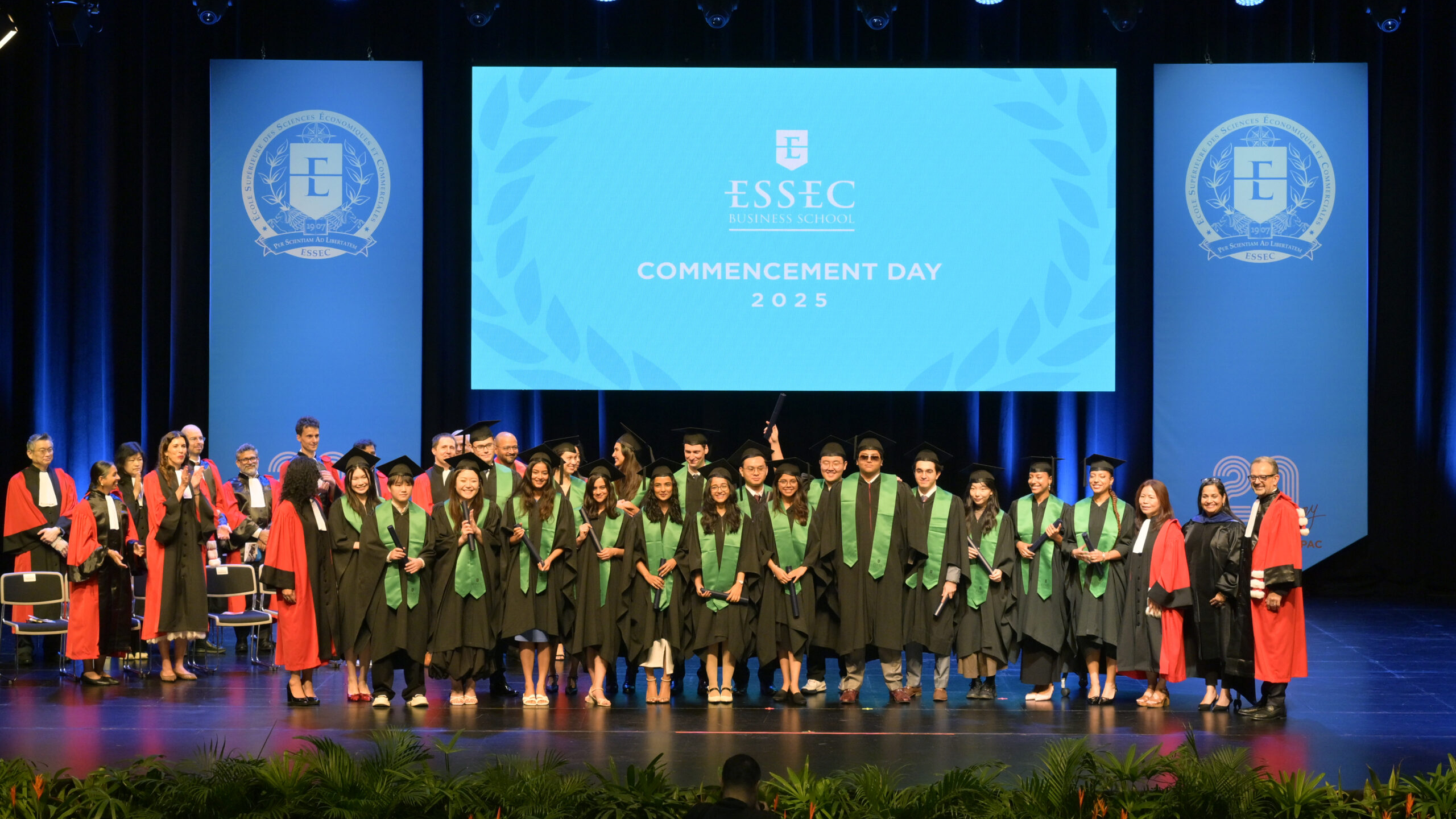From the cyclones in Southern Africa to the bushfires in Australia and floods in East Asia, one thing is clear: As planetary imbalances wreak havoc on communities across the globe, no countries will be spared.
Efforts like the Paris Agreement—which requires countries to halve greenhouse gas emissions and keep the average global temperature to not more than 1.5 degrees Celsius above pre-industrial levels—are struggling to stem the tide. Despite the rising consensus that action must be taken, today, the world teeters dangerously close to the limit, with millions of lives hanging in the balance.
The call to action is increasingly urgent, compelling ESSEC to lead change through initiatives like the ESSEC-Capgemini Invent Roundtable event on 1 December 2022 held at the ESSEC Asia-Pacific campus in Singapore.
Innovating Within Planetary Boundaries
The ESSEC-Capgemini Invent roundtable—held in collaboration between ESSEC Business School and Capgemini Invent, the consulting branch of the Capgemini group—is part of the ESSEC Master in Management (MiM) program’s Asian Strategy Consulting Project (ASCP). Conducted at the end of the ASCP, it consolidates the lessons learned by students during their consulting journey by inviting experts in the field to discuss the latest business trends.
In tandem with the growing conversation on climate change, recent years have seen the topic turn towards sustainability. In 2022, the roundtable was opened for ESSEC Master in Strategy Management & International Business (SMIB) students to attend.
Themed “Innovating Within Planetary Boundaries,” it drew students’ attention to the two opposing camps in the war against climate change: The first, comprising those who believe resources are finite and must be used judiciously, and the second, whose prevailing view is that innovation should relentlessly be pursued—competition will take care of the outcomes.
Opportunities to Discuss and Debate
To help students better understand the perspectives of industry players, the 2022 roundtable included additional workshop sessions led by ASCP partners. This included supply-chain solutions manufacturer TRIGO, sustainability consultants The Matcha Initiative, packaging experts Label for Recycling, and sustainable construction materials developer Widuz.
“It was an incredible chance for us to explore, interact, connect, and learn about sustainability from the top stakeholders,” SMIB student Emilie Henon recalls. She shares that her most significant highlight was attending a workshop led by the Matcha Initiative and hearing how they assist companies in transitioning to more sustainable business.
“We learned how unpredictability has become the norm and why our current performance indicators are insufficient for today’s world. We also discussed the different ways that companies can innovate to move towards more sustainable business,” she elaborates, noting that as an aspiring consultant herself, it was particularly beneficial to see how her views fared against those brought by the diverse participants.
As in any real-world consulting discussion, opinions differed—the challenge was to come to a consensus. “Ultimately, we all agreed that adaptability was crucial,” she says.
Tackling the Tough Questions Head-on
Takeaways from the ASCP partner-led workshops were later discussed during the plenary session moderated by Andre Benoit De Jaegere of Capgemini Invent. In keeping with the 2022 ASCP theme, digital transformation was featured heavily, and students were introduced to Industry 4.0 trends like Robotic Process Automation (RPA) as a solution.
“We learned how, when combined strategically, these solutions enable organizations to unlock the true power of digital so they remain future-ready and competitive,” SMIB student Sébastien Tordo shares. As he, like Emilie, hopes to find a future in consulting, he notes that most valuable to him was the fact that students had a chance to have their burning questions on innovation answered during the Q&A session at the end.
For this, experts threw off the kid gloves as they intellectually sparred with students on the topics that arose, including but not limited to the importance of being adaptable, the value of partnerships, how ESG solutions could be scaled, the power of imagination and of course, the challenges of execution.
The questions were addressed with candor and authenticity, Sébastien recalls, adding that “because the responses from the panelists were particular, students were challenged to rethink our perspectives on innovation.”
“My biggest takeaway was how they emphasized that failure will always occur in the early stages of innovation and that resilience is required—we need to adapt to thrive,” he says.
To him and Emilie, the ASCP roundtable was just as they expected: Educational, practical, inspiring, and perhaps most importantly, a reminder of the change they can and must make for a greener future.
RELATED POSTS
Strengthening our Pledge to Good
On 1 July 2025, ESSEC APAC was conferred the Company of Good - 3 Hearts recognition by the National Volunteer and Philanthropy Centre, a significant…
ESSEC Business & Leadership Immersion Program For Youths 2025
From 30 June to 4 July 2025, ESSEC APAC welcomed over 70 high school students from all over the world for the Business & Leadership Immersion Program…
ESSEC APAC Signs MOU With L’Oréal
On 12 June 2025, ESSEC Asia-Pacific signed a Memorandum of Understanding (MoU) with L'Oréal – marking a new chapter in ESSEC’s long-running…
ESSEC x Decathlon Business Case Competition for Future Leaders
On 7 June 2025, the ESSEC Asia-Pacific Case Competition, held in partnership with Decathlon Singapore, concluded with a Final Pitch Day that…
Celebrating Commencement Day 2025
On 13 June 2025, excitement and joy filled The Theatre at MediaCorp, as over 100 graduates, their loved ones, and the ESSEC community celebrated…
A Morning with the Seniors at FaithActs
On 11 April 2025, ESSEC APAC hosted a heartwarming intergenerational event with 35 seniors, featuring yoga, karaoke, and activities led by our SMIB…
